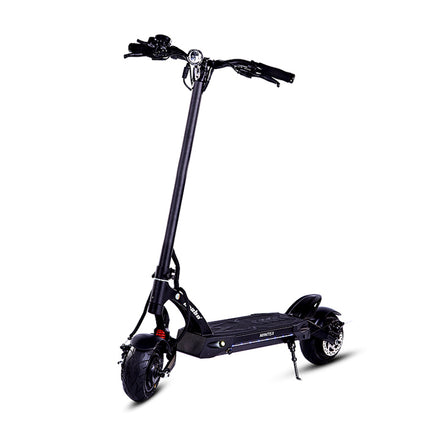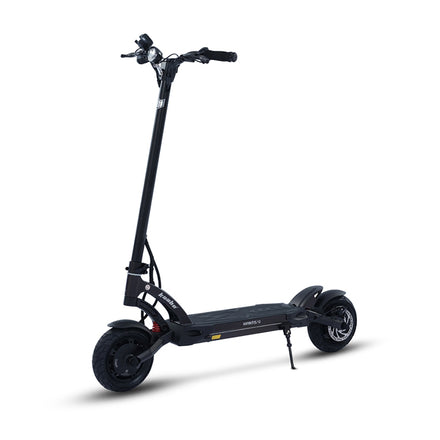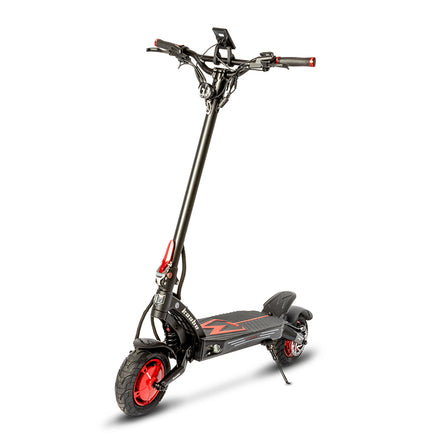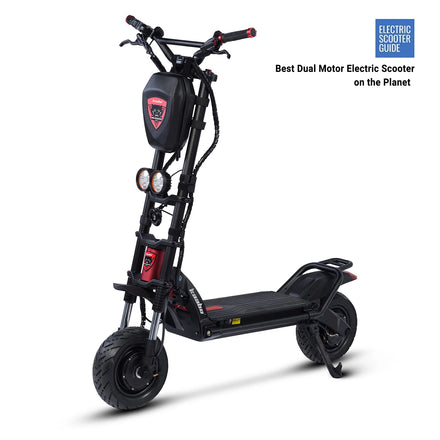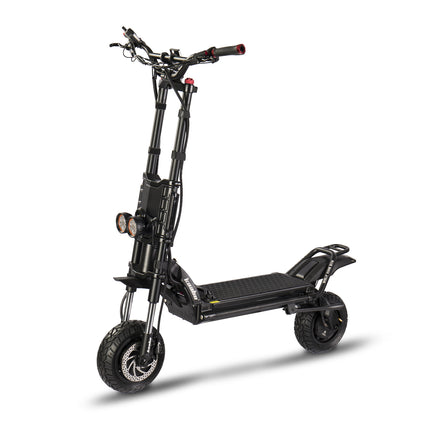What Do You Think About the Prospects of Electric Scooters?
Electric scooters, once seen as a novel and futuristic mode of transportation, have rapidly become a common sight in many cities worldwide. These compact, battery-powered vehicles have sparked excitement and debate about their potential to transform urban mobility. In this blog, we'll explore the prospects of electric scooters and what the future might hold for this innovative means of getting around.
- Eco-Friendly Transportation
One of the most significant advantages of electric scooters is their eco-friendliness. These vehicles produce zero emissions, contributing to cleaner air and reduced carbon footprints in urban areas. With growing concerns about climate change and air pollution, the eco-friendly aspect of electric scooters positions them as a sustainable solution for short-distance commuting.
- Last-Mile Connectivity
Electric scooters excel in providing last-mile connectivity. They bridge the gap between public transportation stops and your final destination, making daily commutes more efficient. By reducing the need for private car trips for short distances, electric scooters can help alleviate traffic congestion and reduce overall transportation-related emissions.
- Convenience and Accessibility
The convenience of electric scooters cannot be overstated. They are easy to use, requiring minimal training, and can be accessed via smartphone apps in many cities. This accessibility makes them an attractive option for a wide range of people, including students, commuters, tourists, and city dwellers looking to run errands or explore their surroundings.
- Cost-Effective Transportation
Electric scooters offer a cost-effective transportation alternative. Compared to owning a car or relying on ride-sharing services, scooter rentals are often more affordable. They eliminate the need for parking fees, fuel costs, and maintenance expenses associated with traditional vehicles. This cost-saving aspect makes electric scooters particularly appealing to budget-conscious individuals.
- Technological Advancements
The future prospects of electric scooters are closely tied to technological advancements. Companies continue to invest in improving battery life, safety features, and connectivity options. Enhanced battery technology will extend the range of scooters, making them more practical for longer commutes. Additionally, the integration of GPS, app-based tracking, and rider data analysis will contribute to better scooter management and user experiences.
- Regulatory Challenges
Despite their potential, electric scooters face regulatory challenges in many cities. Issues like sidewalk clutter, safety concerns, and traffic congestion have led to restrictions and bans in some areas. Addressing these challenges will be crucial for the continued growth and acceptance of electric scooters as a viable urban transportation option.
- A Path to Sustainable Urban Mobility
The future of electric scooters looks promising as they play a vital role in shaping sustainable urban mobility. With ongoing improvements in infrastructure, regulations, and rider education, they have the potential to become an integral part of modern transportation systems. As cities become more congested and environmentally conscious, electric scooters offer a flexible and eco-friendly solution to urban mobility challenges.
Conclusion
Electric scooters have rapidly evolved from a novelty to a practical and eco-friendly mode of transportation. While they have their challenges, their prospects are bright, especially in the context of sustainable urban mobility. As technology continues to advance and cities adapt to accommodate them, electric scooters have the potential to transform the way we move within our urban environments, reducing congestion and emissions while enhancing convenience and accessibility.
Lastest Blog Post






Related Product
Newletter
Promotions, new products and sales. Directly to your inbox.


